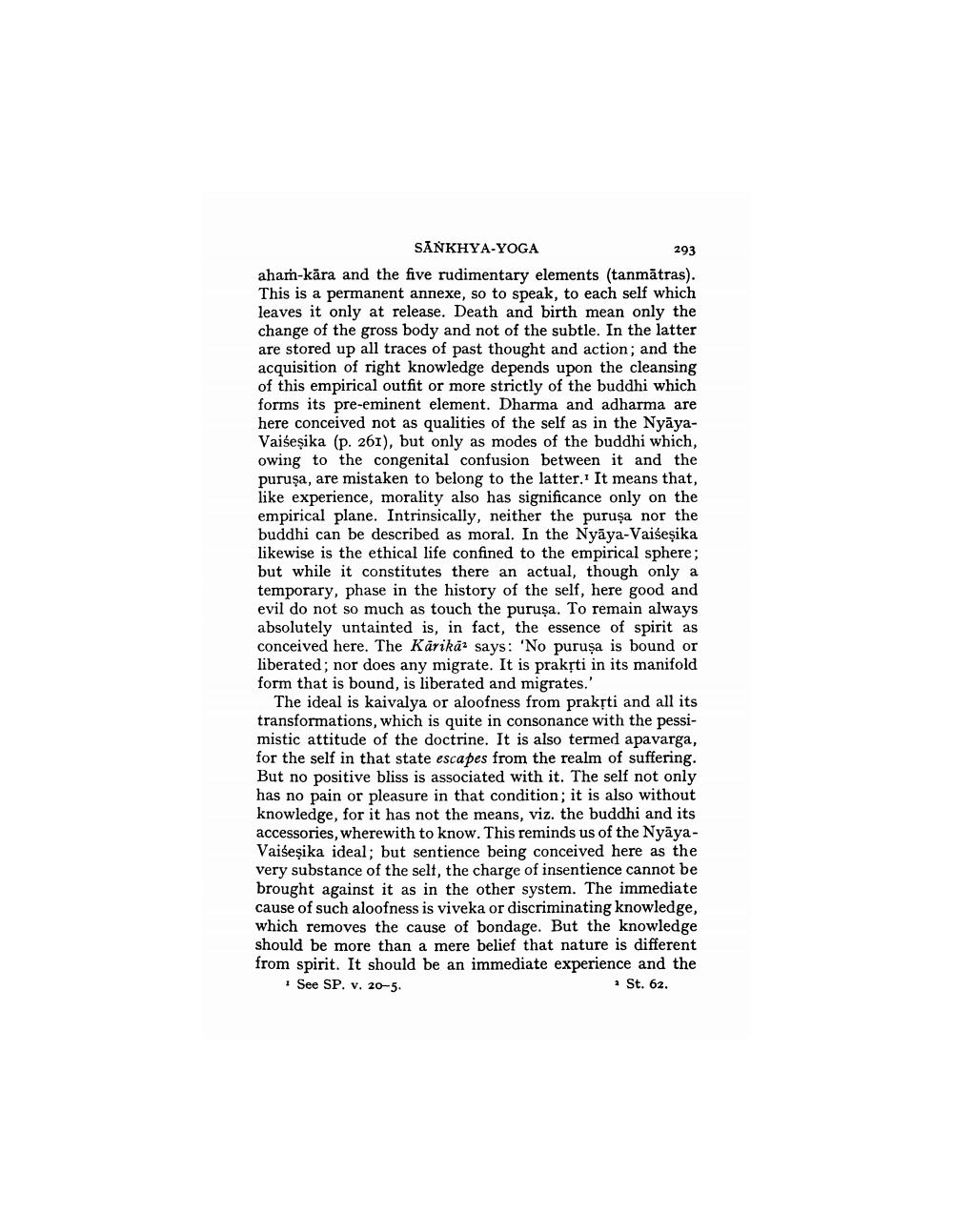________________
SANKHYA-YOGA
aham-kāra and the five rudimentary elements (tanmātras). This is a permanent annexe, so to speak, to each self which leaves it only at release. Death and birth mean only the change of the gross body and not of the subtle. In the latter are stored up all traces of past thought and action; and the acquisition of right knowledge depends upon the cleansing of this empirical outfit or more strictly of the buddhi which forms its pre-eminent element. Dharma and adharma are here conceived not as qualities of the self as in the NyāyaVaiśeşika (p. 261), but only as modes of the buddhi which, owing to the congenital confusion between it and the puruşa, are mistaken to belong to the latter. It means that, like experience, morality also has significance only on the empirical plane. Intrinsically, neither the puruşa nor the buddhi can be described as moral. In the Nyaya-Vaiśeşika likewise is the ethical life confined to the empirical sphere; but while it constitutes there an actual, though only a temporary, phase in the history of the self, here good and evil do not so much as touch the purușa. To remain always absolutely untainted is, in fact, the essence of spirit as conceived here. The Karika says: 'No puruşa is bound or liberated; nor does any migrate. It is prakṛti in its manifold form that is bound, is liberated and migrates.'
293
The ideal is kaivalya or aloofness from prakṛti and all its transformations, which is quite in consonance with the pessimistic attitude of the doctrine. It is also termed apavarga, for the self in that state escapes from the realm of suffering. But no positive bliss is associated with it. The self not only has no pain or pleasure in that condition; it is also without knowledge, for it has not the means, viz. the buddhi and its accessories, wherewith to know. This reminds us of the NyāyaVaiseṣika ideal; but sentience being conceived here as the very substance of the self, the charge of insentience cannot be brought against it as in the other system. The immediate cause of such aloofness is viveka or discriminating knowledge, which removes the cause of bondage. But the knowledge should be more than a mere belief that nature is different from spirit. It should be an immediate experience and the
a St. 62.
1 See SP. v. 20-5.




